
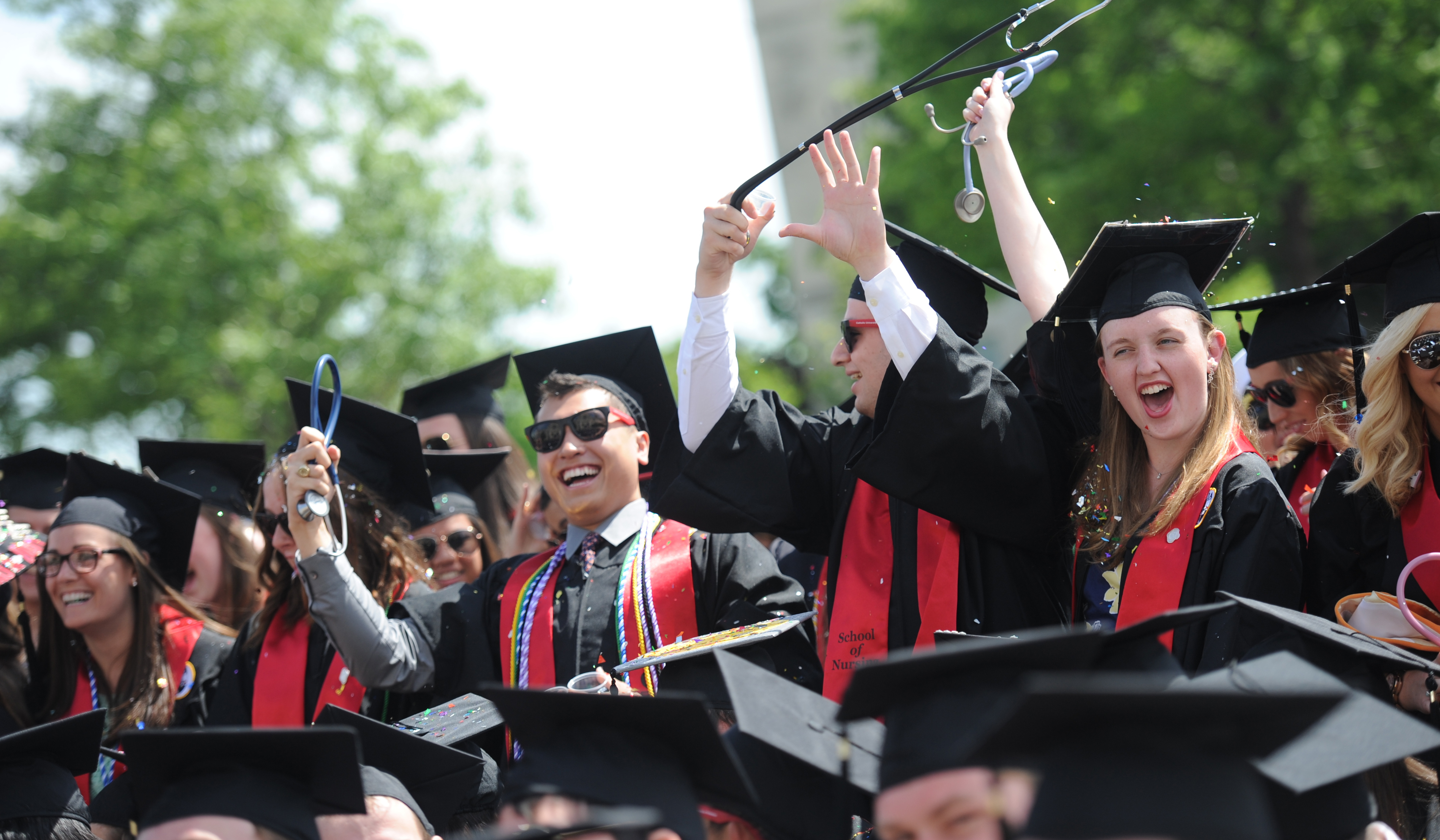
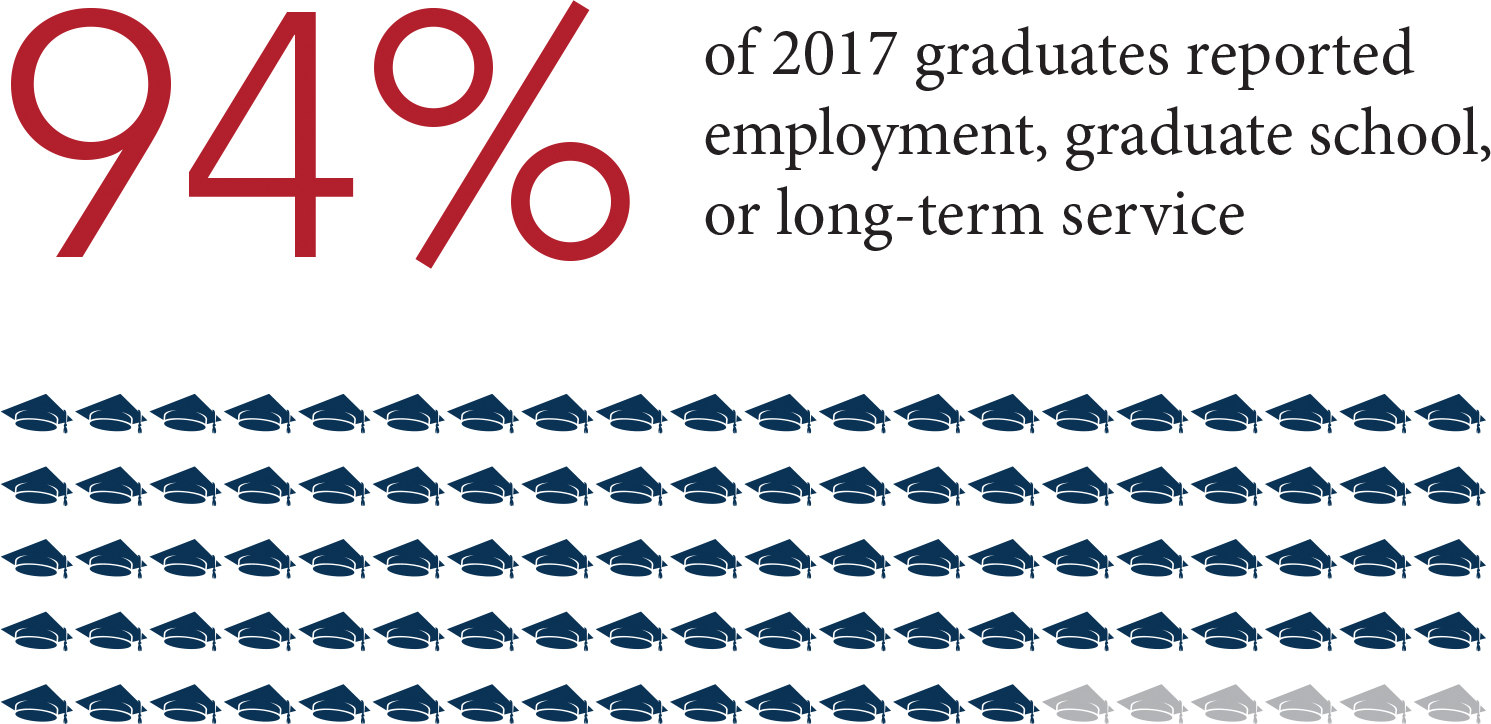
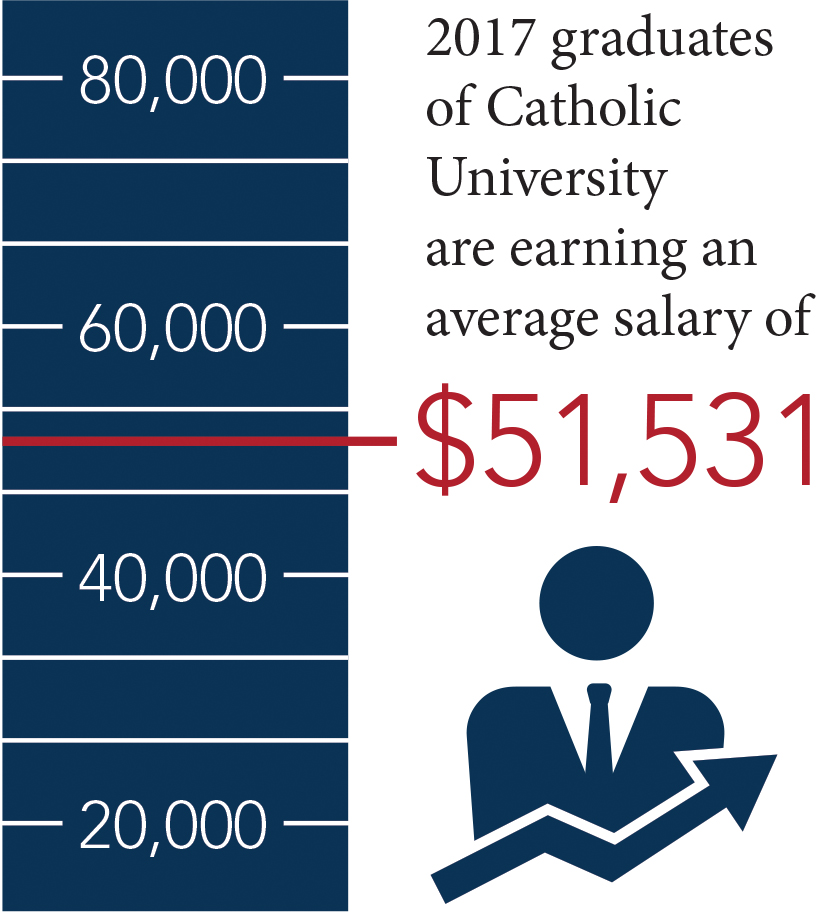
What makes graduating from college thrilling can also make it nerve-wracking: not knowing what comes next, wondering where exactly the road is leading.
Graduates of Catholic University tend to have a pretty good idea of what they’ll be doing after the pomp and circumstance have died down. A survey of 2017 graduates showed that 94 percent were either employed, in graduate school, or volunteering within six months of receiving their diploma.
The seniors of 2018 graduating in the STEM fields (science, technology, engineering, and mathematics) seem to be similarly prepared on the employment front, with many cruising toward commencement, job offers or acceptance letters to graduate programs already in hand.
“The economy these days is good,” said George Nehmetallah, assistant professor of electrical engineering and computer science.
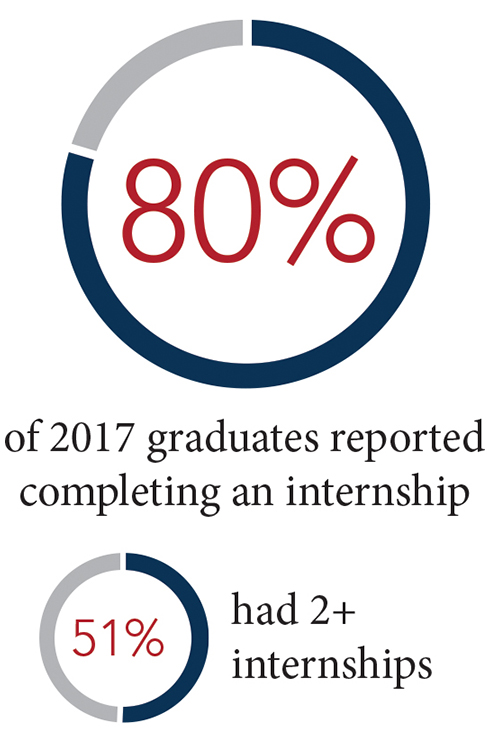
He’s seeing a lot of his students go right from graduation to a job, usually after having done at least one internship as undergrads.
“It’s inversely proportional,” said Nehmetallah. “If the economy is good, not a lot of students want to go to higher degrees. They go on to get a job. If the economy is bad, they stay in school.”
This is a good economy, he said, for STEM students to be looking for jobs. For example, among 2017 graduates from the School of Engineering, 95 percent were either employed or in graduate school within six months of completing their degrees.
“It seems to be going better and better,” for Catholic University grads, said Anthony Chiappetta, director of the Office of Career Services. “There’s an upward projection.”
Chiappetta said that employers are particularly looking for students who’ve completed an internship, where they can refine what he calls “soft skills,” such as communication and leadership, refining them in the real world. But they can also put the “concrete skills” they’ve learned in class to the test, he said.
Preparing students for that first job after college is top of mind in the School of Engineering, said Dean John Judge. Historically, he said, seniors have taken a one-semester course preparing for a licensure exam, a test that is more relevant for civil engineers than for mechanical and electrical engineers.
Now, they take a senior seminar in which they hear from professionals in various fields and industries speaking on topics students may have to deal with in their careers, such as intellectual property, engineering sales, next-generation wind-power technologies, and maritime R&D. The seminar is also an opportunity for students to network with potential employers.
“These are issues that don’t necessarily show up in a typical engineering class but are important to know as they’re going out into the workforce,” said Judge. “I think that was a pretty successful change to that course, to get students more exposure to working professionals,” including from Samsung, the FDA, and NASA.
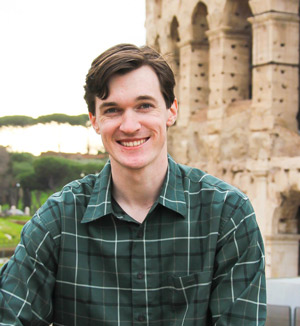
Michael Monaghan, who majors in computer science, has been interning at NASA for more than a year and will be starting a full-time job at Goddard Space Flight Center in June, doing science data processing.
“It’s definitely a relief,” he said, to know he’s got a job waiting for him. The reality of it makes him giddy, and hasn’t quite sunk in yet. “I’m working for the agency that put people on the moon. It’s crazy!”
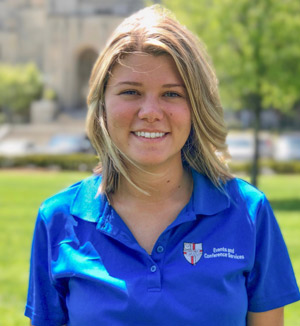
Victoria Freshour, in the School of Nursing, will be working at Georgetown University Hospital, where she has interned in their medical ICU. “I’m really excited,” she said. “It’s going to be great!”
Nursing runs in her family, but she still found it beneficial to get professional advice from career services.
“I thought they were really helpful,” said Freshour. “They taught me about behavior in interviewing and showed me how to make a resume specific to my nursing experience. I’d never done a resume before. I always tell underclassmen to go to them!”
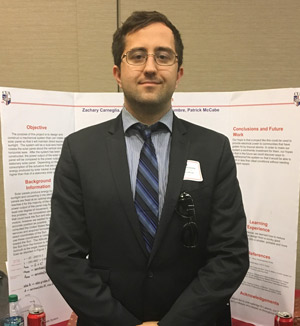
Patrick McCabe is studying mechanical engineering and plans to continue for another year at Catholic in the MSBA (Master of Science in Business Analysis) program. After that, maybe med school.
Calling himself “a talker by nature,” he decided that adding a business degree to engineering would give him a natural entrée into work as a sales engineer, helping companies figure out which products are best for them.
He interned in Arizona last summer, trying to sell local businesses on a program connecting them with others in possession of AED defibrillators. They weren’t as successful as he had hoped, but he believes they will be eventually. As will he.
“It’s not just, wow, well you know engineering,” said McCabe, “but how well you can sell yourself in the business world?”